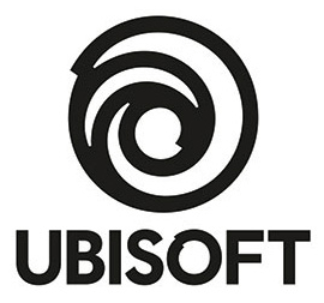
Cheating in videogames is a popular pastime for those who don’t want to play by the rules but there are two distinct groups who detest the activity.
While genuine players are routinely disadvantaged by those running cheat software, developers not only see their finely-tuned gaming environments disrupted but in some cases their business models too.
In September, the BBC ran a video piece on the topic of game cheating. An alleged 17-year-old appeared on the show in disguise, speaking of the hacks he created for Rainbow Six Seige, and noting that if Ubisoft “decides to come after you for copyright infringement then you’re in for a tough time.”
A month later, those tough times have arrived. In a lawsuit filed by Ubisoft in a California federal court, the videogame company is suing ‘J.V.L’, a teenager who lives in the Netherlands, allegedly developed a sophisticated Rainbow Six Seige (R6S) cheat, and reportedly appeared in the BBC interview under the alias ‘Lucas’.

Formerly known as “CheapBoost” but now known as “Budget Edition Rainbow Six: Siege Cheat”, it’s claimed the cheat allowed people to manipulate R6S to their advantage by “increasing the damage inflicted by the player, changing the player’s perspective, and allowing the player to see areas of the battlefield that otherwise would be obscured.”
The lawsuit targets several people, including J.V.L’s mother, Sandra Rijken, and numerous alleged support staff and resellers of the cheat. Most are only known by their online aliases but Ubisoft says it will amend its complaint when their identities are known.
The lawsuit also lists business entities Mizusoft (which was allegedly founded by J.V.L and sold the cheat) plus Rijken’s company Simply san Webdesign, which reportedly collected, processed and transmitted payments from Mizusoft customers to one or more of the defendants.
Ubisoft claims that Mizusoft was created for the “express purpose” of shielding J.V.L and his mother from the legal consequences of creating and distributing the R6S cheat software.
“Ubisoft is informed and believes, and on that basis alleges, that Defendants’ entire business is dedicated to creating, producing, marketing, distributing, and supporting the Cheating Software – which can be used only to cheat in R6S. Thus, Defendants’ business is wholly parasitic in nature and is entirely dependent upon causing harm to Ubisoft and its multiplayer community,” the complaint notes.
For those unfamiliar with this kind of cheating software, its cost will come as a surprise. According to the complaint, the cheat in question was sold on a recurring subscription fee basis of 11.99 euros per day, 29.99 euros per week, or 69.99 euros per month. Those payments, Ubisoft claims, were made to Simply San Webdesign via Stripe.
“Defendants know that trafficking in circumvention products such as the Cheating Software is unlawful and violates Section 1201 of the DMCA. As J.V.L. admitted on a BBC news segment: ‘if Ubisoft decides to come after you because of copyright infringement then you’re in for a tough time’,” Ubisoft adds.
The company says that the defendants’ actions have caused serious harm to its games and its online community, ruining the gaming experience for players and causing them to lose interest and stop playing R6S. On top, the company says it has spent “enormous sums of money” attempting to mitigate the cheat, including hiring people to police games for cheaters.
Ubisoft says that by creating and distributing the cheat software, the defendants trafficked in circumvention devices that are solely designed to defeat technological measures put in place to control access to a copyrighted work.
“As a result of the foregoing, Defendants are offering to the public, providing, importing, or otherwise trafficking in technology that violates 17 U.S.C. § 1201(a)(2). Defendants’ acts constituting DMCA violations have been and continue to be performed without the permission, authorization, or consent of Ubisoft,” the complaint adds.
In terms of damages under the DMCA, at the very least Ubisoft is demanding the profits generated by the defendants, which according to them could run to hundreds of thousands of dollars.
Alternatively, Ubisoft says it is entitled to maximum statutory damages of $25,000 for every breach of the DMCA, which run into their thousands. In any event, the company wants all of its legal fees and costs repaid.
But the complaint doesn’t stop at claims under the DMCA. A second count claims ‘intentional interference with contractual relations’, with the defendants standing accused of encouraging and inducing their customers to breach their Terms of Use agreement with Ubisoft, which bans cheating. The company also claims unfair competition.
“Defendants are guilty of oppression, fraud, or malice, and Ubisoft, in addition to its actual damages, by reason thereof, is entitled to recover exemplary and punitive damages against Defendants,” the company adds.
Initially, however, Ubisoft wants the entire operation shut down and more.
In addition to an injunction preventing the activities detailed in the complaint, Ubisoft wants the defendants to hand over everything that infringes their rights along with accounts that show all sales of cheat products and services in the United States. Ubisoft also wants to seize all domain names connected to the cheating business.
Ubisoft’s complaint, obtained by TorrentFreak, can be found here (pdf)





